Prosecutors move forward on Jan. 6 riot probes after Proud Boys convictions
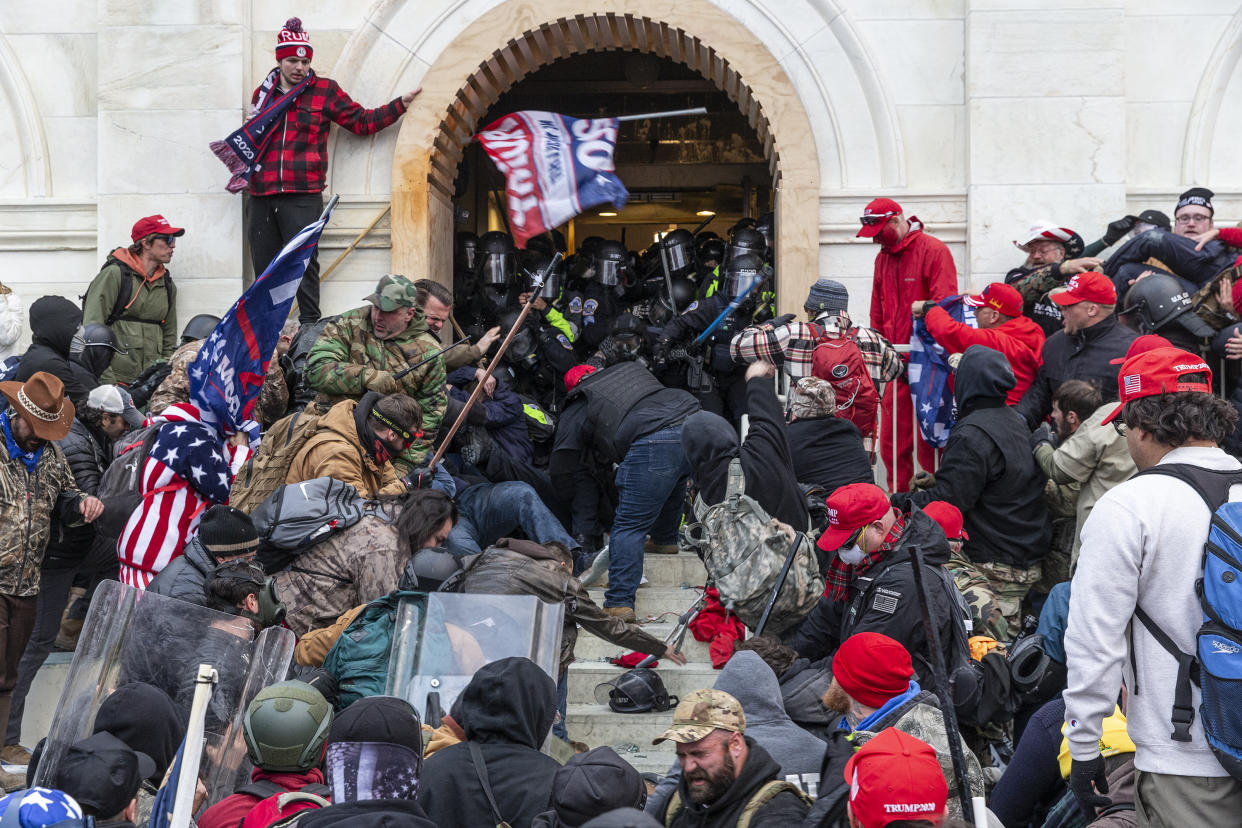
WASHINGTON — A federal jury in Washington found the leader and three senior members of the Proud Boys militia movement guilty of seditious conspiracy charges Thursday, handing Justice Department prosecutors a second round of sedition-related convictions against members of a far-right group in connection with the Jan. 6, 2021, riot at the U.S. Capitol.
Leaders of both the Proud Boys and the Oath Keepers, an antigovernment militia that cultivated former police officers and military members, are among more than a dozen Jan. 6 rioters convicted of seditious conspiracy under a rarely used federal law dating back to the Civil War.
Lawyers for Proud Boys leader Enrique Tarrio and four associates who participated in the Jan. 6 riot argued that although their clients may have used inflammatory and sometimes violent rhetoric before, during and after the riot, such chatter did not amount to evidence of seditious conspiracy.
But the Washington jury found Tarrio and three of his co-defendants guilty of the charge, as well as other serious riot-related charges. Jurors could not agree to convict Dominic Pezzola, a fifth defendant who joined the Proud Boys only weeks before the Jan. 6 riot, of seditious conspiracy. Pezzola was, however, found guilty on other serious criminal counts, including charges related to his actions in breaking a Capitol building window using a riot shield he’d seized from police.
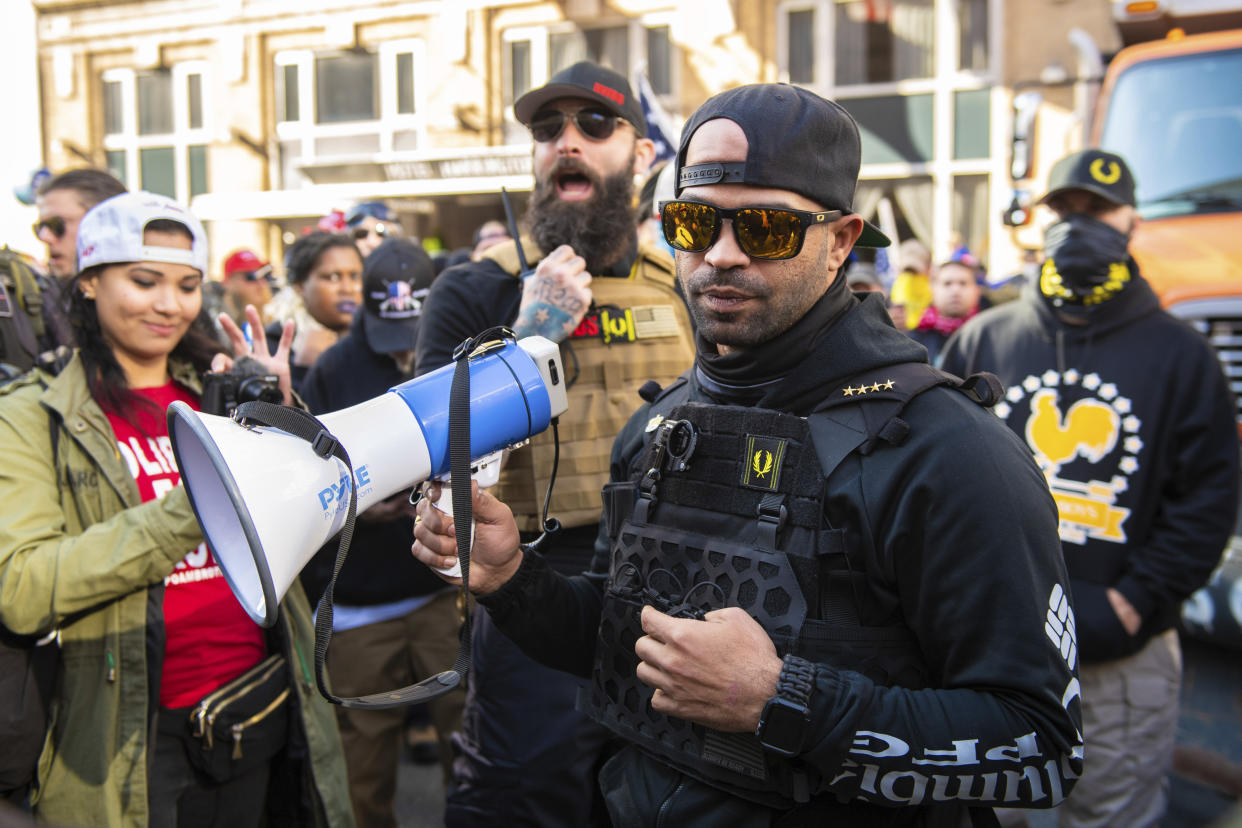
A key prosecution witness against Tarrio and his fellow Proud Boys was Jeremy Bertino, a former leader of one of the group’s North Carolina chapters, who pleaded guilty to seditious conspiracy in October.
Bertino participated in several Proud Boys rallies in Washington, D.C., in 2020. During a particularly violent altercation with purported antifa rival demonstrators on Dec. 12, 2020, Bertino was seriously stabbed, leading to several days in the hospital and a lengthy recovery that kept him from participating in the group's Jan. 6 activities. Despite his injuries, Bertino remained a group insider with access to encrypted messages exchanged by Proud Boys leaders and members of a subgroup known as the Ministry of Self Defense in the lead-up to Jan. 6.
During the trial, Bertino testified that he never heard the group or its leaders outline a specific plan for violence on Jan. 6, though he said the outbreak of violence that day did not surprise him.
He also testified that he was unaware of any prior discussions about what Proud Boys planned to do once they reached the Capitol that day.
In response to questions from a prosecutor about the “objective” of the Jan. 6 protest, Bertino testified that he understood that the goal was to “stop Joe Biden from being certified as the president of the United States” and that achieving this end could include what the prosecutor described as “use of force.” He also acknowledged that, in conversations prior to Jan. 6, group members had discussed how force might be necessary “if all other avenues were exhausted" to keep Biden from assuming the presidency.
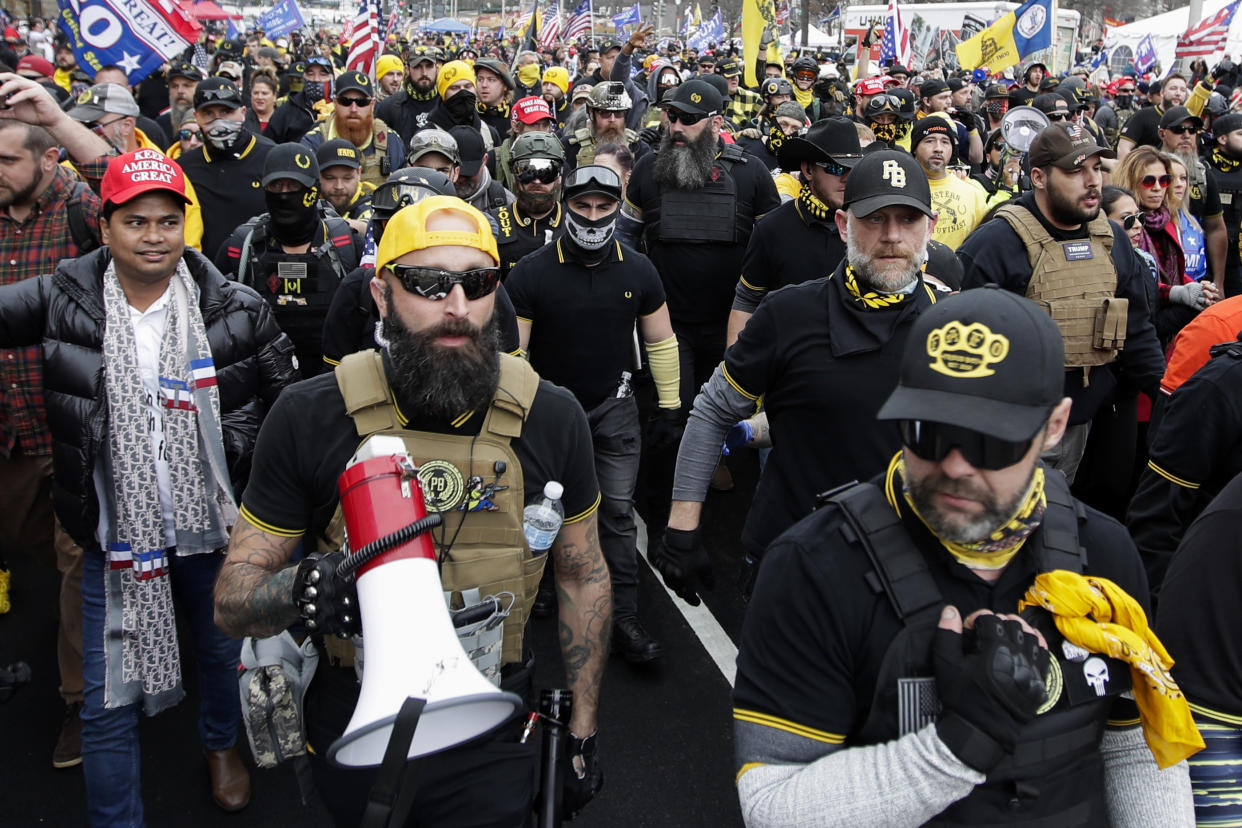
The Proud Boys trial, which began with opening statements in January, follows the high-profile prosecution of Oath Keepers leader Stewart Rhodes, who was convicted in November of seditious conspiracy in connection to the Jan. 6 attack. During that trial, Rhodes testified under oath that, while he believed Biden’s victory in the 2020 presidential election was “invalid,” he did not instruct members of the Oath Keepers to storm the Capitol on Jan. 6.
“I never had any plan or intention to have my guys try to prevent certification of election results,” Rhodes told the jury. “I think it was stupid to go into the Capitol. It was not our mission. If they had asked me, I [would have] said, ‘Don’t.’”
The jury was apparently not convinced, since they voted to make Rhodes and co-defendant Kelly Meggs, who led the Oath Keepers’ Florida chapter, the first people to be found guilty of seditious conspiracy at trial in nearly 30 years.
Rhodes has yet to be sentenced for his conviction.
Seditious conspiracy, which carries a prison term of up to 20 years, is among the most serious criminal charges that federal prosecutors have brought against Jan. 6 defendants. Congress originally approved the law after the Civil War to empower authorities to arrest citizens of former Confederate states who attempted to continue fighting the federal government.
Attempts by prosecutors to use seditious conspiracy charges in other modern cases have produced mixed results. After four militants demanding independence for Puerto Rico shot up the House of Representatives in 1954, wounding several members of Congress, the shooters and more than a dozen co-conspirators were convicted of seditious conspiracy and the leader of the attack spent 35 years in prison.
Prosecutors also won seditious conspiracy convictions for Omar Abdel-Rahman, the Egyptian imam known as the “blind sheikh,” and nine others for an alleged plot to blow up New York City bridges, tunnels and the United Nations headquarters in the early 1990s.
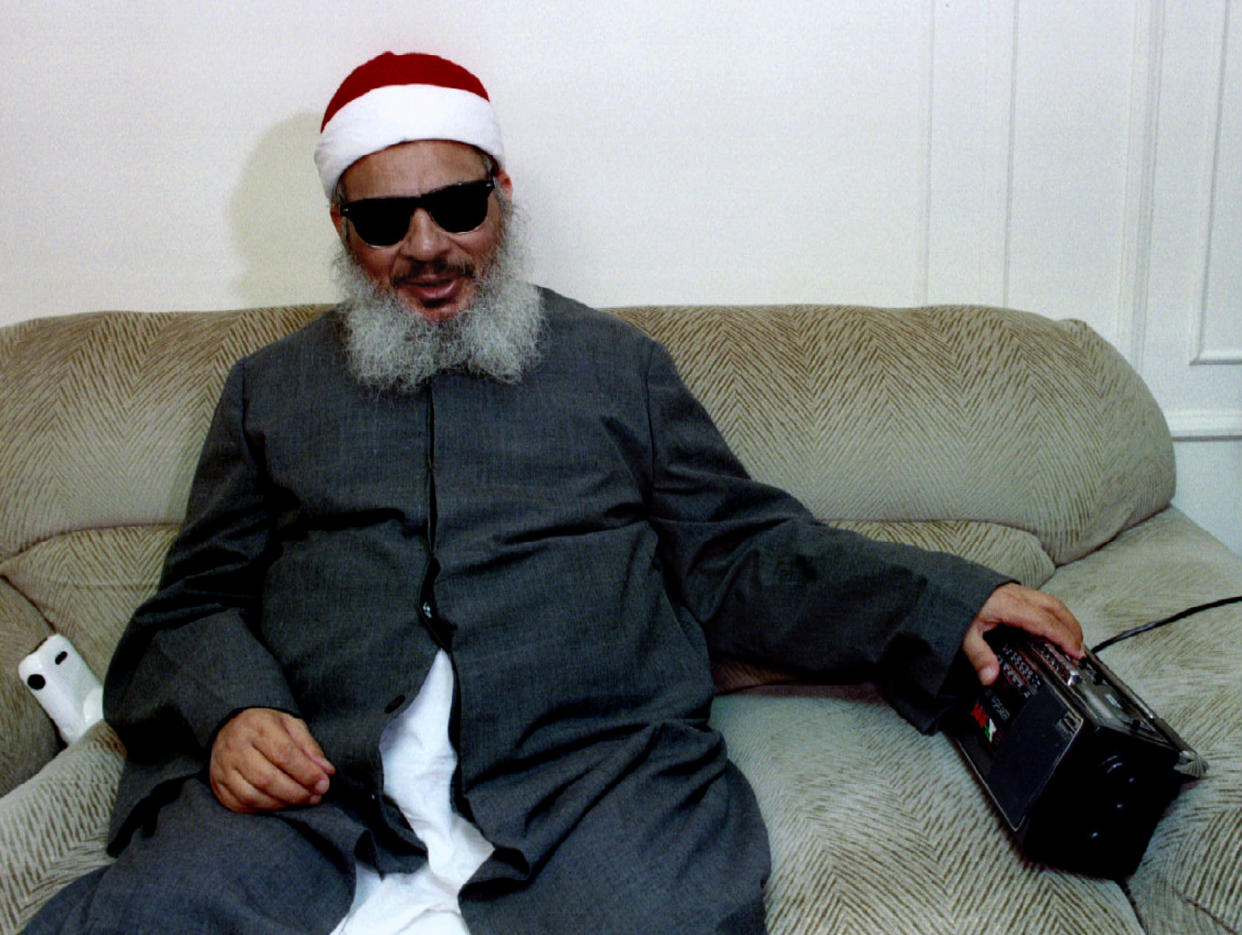
But federal prosecutors failed to successfully use the law against members of the far-right Hutaree militia in Michigan who allegedly plotted to kill a police officer and bomb his funeral in 2010. In that case, the seditious conspiracy charges were thrown out by a federal judge who viewed them as an overreach.
In a summary of Jan. 6 arrests and prosecutions released in early April, the U.S. attorney’s office in Washington, which leads Jan. 6 prosecution efforts, reported that more than 1,020 defendants have been arrested in nearly all 50 states and the District of Columbia, including individuals facing charges in both federal and local courts.
Prosecutors said that about 339 defendants face charges of assaulting, resisting or impeding authorities, including roughly 107 individuals who are charged with “using a deadly or dangerous weapon or causing serious bodily injury to an officer.”
Prosecutors said around 533 defendants have already pleaded guilty to federal charges, including about 144 who pleaded guilty to felonies and 389 who pleaded guilty to misdemeanors. Of those who have pleaded guilty to felonies, 61 admitted to assaulting police.
According to the same report, 67 defendants have been found guilty after contesting the charges against them at trial. Prosecutors added that around 453 federal defendants had so far been sentenced in connection with the Jan. 6 riot and, of these, around 237 had received jail sentences.
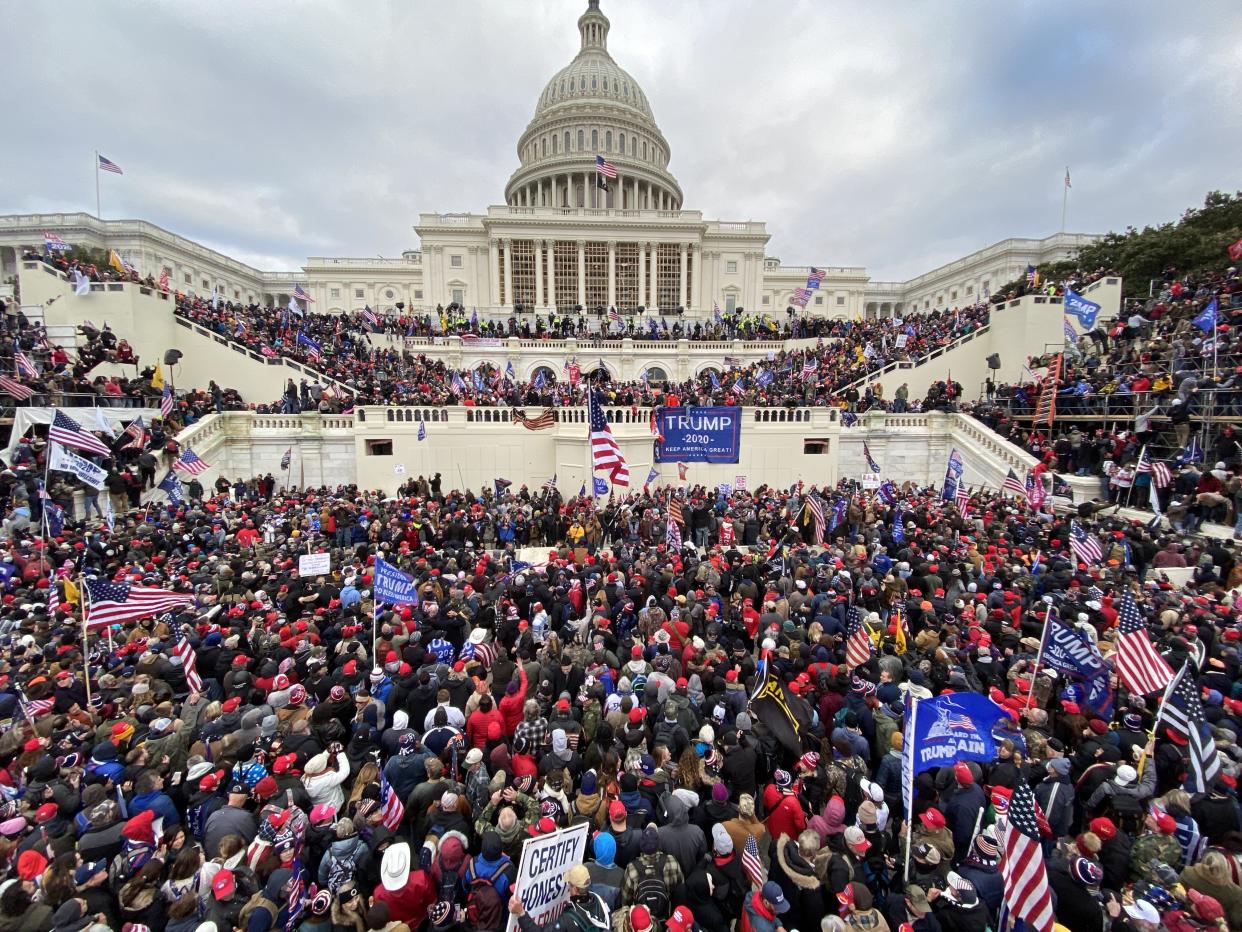
As of last month, the U.S. attorney’s office said the FBI was still seeking public help in identifying “more than 260” individuals it believes participated in the riot, bringing the total number of alleged rioters to about 1,400.
Prosecutors are scheduled to release updated figures on Jan. 6 arrests and convictions next week.
Some defense lawyers, including those who recently represented Proud Boy defendants, have sought to attribute at least some of their clients’ behavior on Jan. 6 to then President Donald Trump, who in the weeks and months before the riot had claimed, without evidence, that Biden and Democrats stole the 2020 election from him by using widespread voter fraud.
Norman Pattis, a lawyer for Proud Boys defendant Joe Biggs, told jurors during the trial that Jan. 6 became a “perfect storm” as a “nation of strangers gathered together as their commander in chief told a lie.” He went on to quote Trump urging his audience to be in Washington on Jan. 6 for a “wild protest.”
In his closing statement to the jury that ultimately convicted Biggs, Tarrio and two other Proud Boys of seditious conspiracy, prosecutor Conor Mulroe told jurors that they could vote to convict even if prosecutors did not present evidence of an explicit plan to attack the Capitol in order to block Biden’s inauguration.
A conspiracy is nothing more than an agreement with an unlawful objective, Mulroe told the jury. A conspiracy can be “unspoken … implicit … a mutual understanding … a wink and a nod or acting in concert together.”
